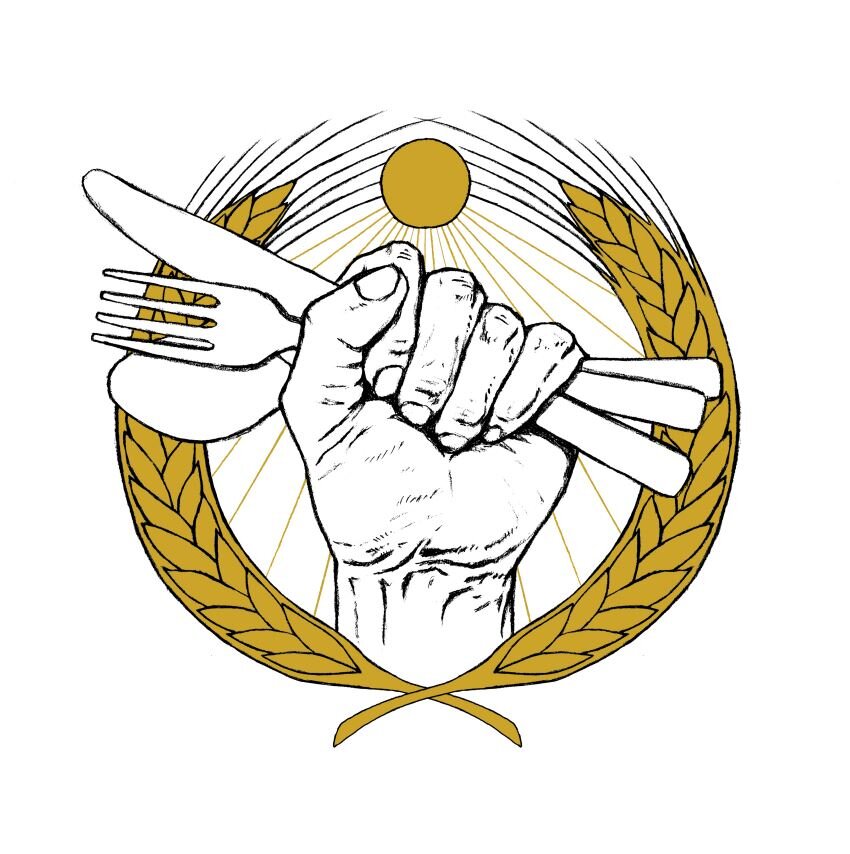How Wescott Is Fighting Hunger and Job Loss During a Pandemic
photo courtesy of wescott mutual
With the spread of COVID-19, Lauren Monforte’s job means constant risk. As an attorney for a signed council, similar to a public defender, she works closely with a lot of vulnerable and in-need individuals. She’s also the owner of Beer Belly Deli, a fan-favorite of local Syracuse college students. As the virus began to take over New York, shuttering local businesses and increasing unemployment, Monforte says, “I knew that this virus situation was going to make an already hard situation very hard for the people I work with every day, and for the people in the Wescott community that I feed every day.”
When restaurants in New York finally closed down and the University canceled residential instruction for the remainder of the year, Beer Belly had to let 90 percent of their staff go. “A lot of them live in the Wescott neighborhood, and a lot of them are students who are far from home and don’t have any other source of income. So I felt very responsible,” Monforte says.
As the restaurant switched to takeout only, Monforte wanted the Beer Belly kitchen to go to good use, but couldn’t find a charity with that specific need. So she took things into her own hands, partnering with SU professor David Knapp to head an initiative called Community Plates, which would help feed those in need of meals, while creating work for those who’ve lost jobs due to restaurant closures.
The two quickly partnered with Salt City Market, whose 501c3 status enables them to raise money, as well as Southwest Community Center, which already distributes food to those in need. On Friday, March 20th, just four days after restaurants began to shut down, Beer Belly did their first test run, donating 300 plates of chicken, mashed potatoes and corn to the Southwest Community Center. The food was gone in 45 minutes.
Community Plates has since shifted away from the Beer Belly kitchen and is currently preparing all food at the Southwest Community Center (also known as the Southside Community Connections). On Wednesday, the line for meals started well before distribution was set to begin at 2 p.m. Half an hour before this official time slot, 250 of the 300 meals had already been given away.
By Thursday, the donation page had brought in $10,000. Knapp says if Community Plates could get to $15,000 in donations, they’d be able to keep churning out meals for another month. They’re also in the process of partnering with another local organization, which will enable them to produce an additional 20-30 meals per day, and are working on setting up more distribution points.
Community Plates is the first initiative of Monforte and Knapp’s larger vision, of a new organization called Wescott Mutual. Its ethos is to match community members’ needs, based on an age-old concept called “mutual aid,” in which people exchange resources and services for mutual good. Knapp describes it as “non-hierarchical, community driven, and to some respects anti-capitalists.”
What differentiates the Community Plates initiative from a food pantry, Knapp says, is that “it provides that economic angle for continued employment.” So far the funding has enabled two positions to open— one at Beer Belly Deli and another at Southside Community Connections. The money raised has also provided some work for a handful of employees at Southside Community Connections whose salaries come from what Knapp calls “a patchwork of grants,” which wouldn’t be paid if there wasn’t food to be made and distributed. “It’s not an entity that does things. It’s a collective of people that help other people organize,” Knapp says.
To get involved, the Community Plates website includes forms where community members can disclose their needs or services. The submissions are then auto-filtered onto a public spreadsheet so that those who need things like childcare, transportation, or temporary work, can see and contact those willing to provide these services, and vice versa.
“Everybody has a different resource right now, that’s kind of outside the scope of our day to day. It’s about matching peoples’ needs with people’s resources in an untraditional way,” Monforte says.
Knapp has been holding weekly meetings, and hopes to start holding informational sessions so that people can learn how to organize in their communities. As an example, Knapp brings up the collection of expensive tools he’s acquired over the years from remodeling his home. In the future, he’d like to create some sort of registry where people could list tools they’re willing to share, and others could look at what tools are available to borrow, all in the name of helping each other.
“Mutual aid is a way of enabling people to exercise collective action outside of corporate and governmental structures,” Knapp says. Monforte agrees. “Anything you can do to make people feel not alone in this I think is important,” she says.
At their current model, every $100 provides 67 meals and about 2.5 hours of employment. You can donate at www.saltcitymarket.com/donations.

